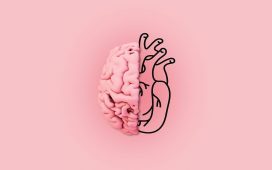Significant reduction seen in binge eating episodes and improvement seen in mental health outcomes
By Elana Gotkine HealthDay Reporter
THURSDAY, May 16, 2024 (HealthDay News) — For patients with binge eating disorder (BED), a web-based cognitive behavioral self-help intervention leads to significant reductions in binge eating episodes and improvements in mental health outcomes, according to a study published online May 16 in JAMA Network Open.
Luise Pruessner, from Heidelberg University in Germany, and colleagues examined the effectiveness of a web-based cognitive behavioral self-help intervention for individuals with BED in a two-arm, parallel-group randomized clinical trial. A total of 154 patients aged 18 to 65 years who met the diagnostic criteria for BED were enrolled and randomly assigned to a web-based self-help intervention or a waiting-list control condition (77 to each).
The researchers observed significant improvements in binge eating episodes (Cohen’s d, −0.79) and in global eating psychopathology, weekly binge eating, clinical impairment, well-being, depression, anxiety, self-esteem, and emotional regulation (difficulties and repertoire) with the web-based intervention.
“The provision of accessible and effective treatment options holds promise for improving the everyday experiences of patients with BED, as well as for diminishing its adverse health effects,” the authors write. “Providing these programs to those in need of treatment can contribute to alleviating the burden that BED places on patients, their families, and society.”
Copyright © 2024 HealthDay. All rights reserved.








